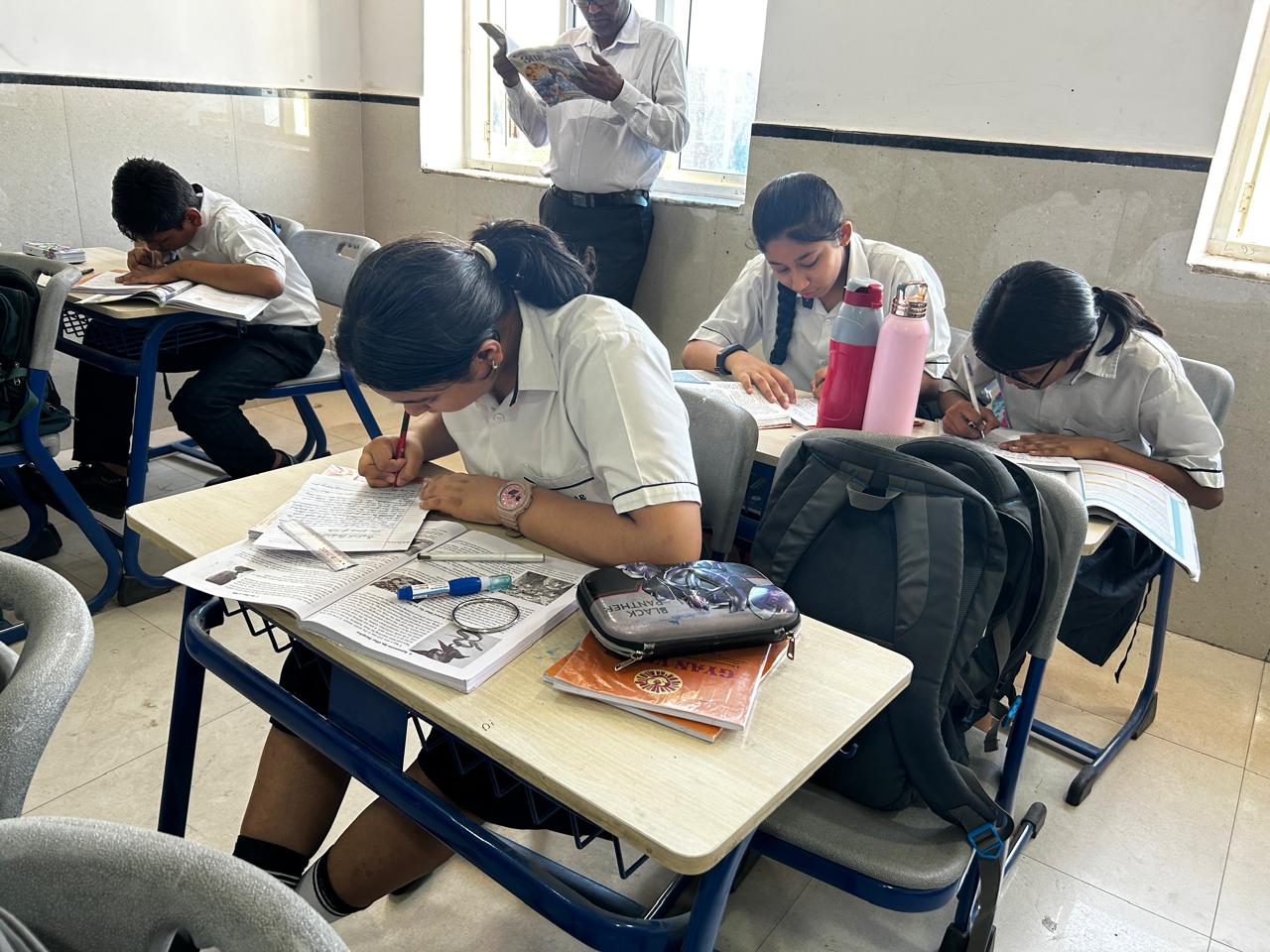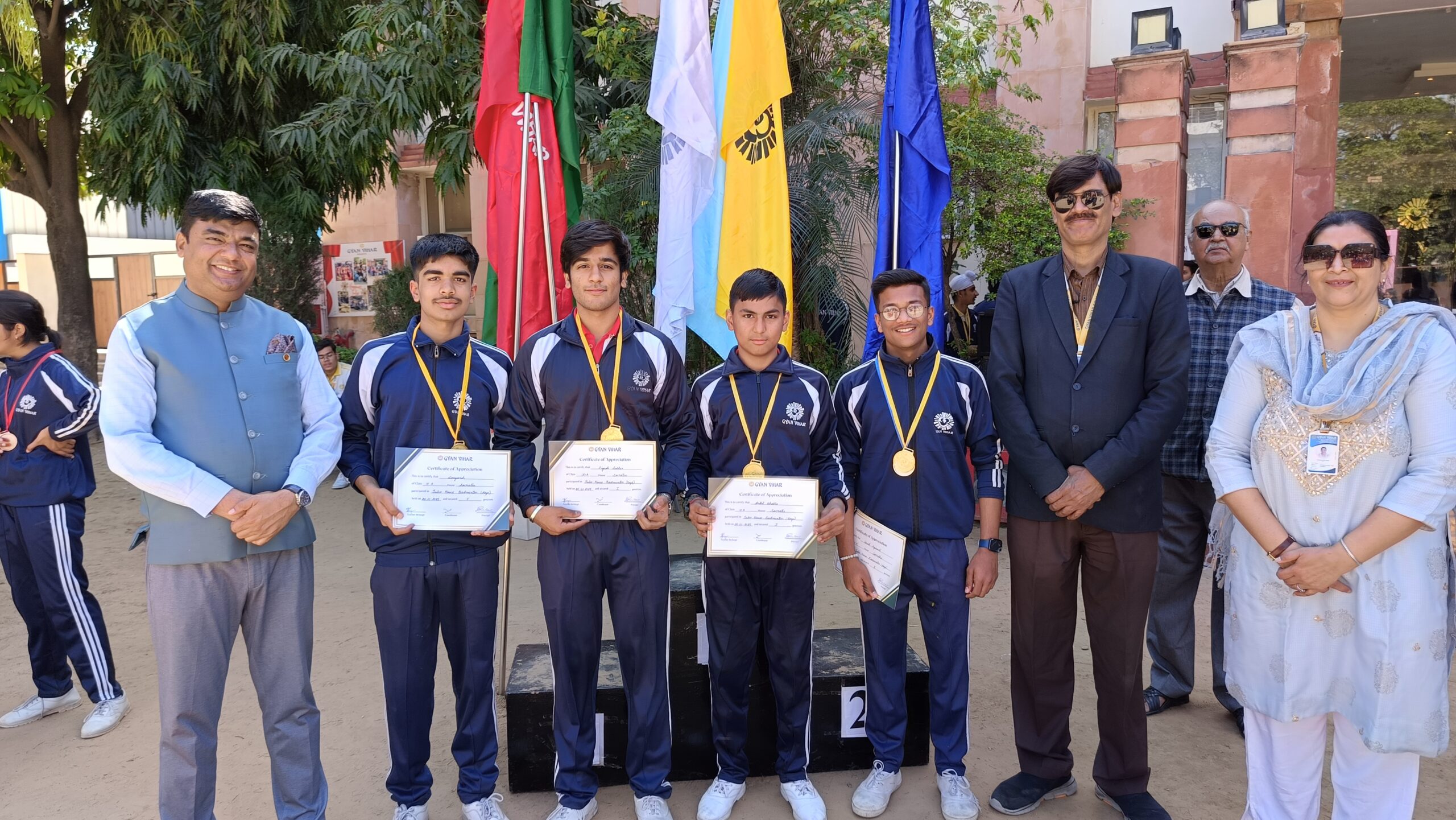India, the world’s largest democracy, thrives on the active participation of its citizens. But what about the future? With a burgeoning youth population, the responsibility of safeguarding and strengthening our democracy falls squarely on the shoulders of young minds like yours. Here at Gyan Vihar School, a leading CBSE school in Jaipur and one of the Top Schools in Jaipur, we believe that the youth of India hold the key to shaping a vibrant and prosperous future for our nation.
This blog delves into the crucial role young people play in Indian democracy. We’ll explore the challenges and opportunities that lie ahead, and equip you with the knowledge and tools to become active and responsible citizens. By the end, you’ll be empowered to take charge and contribute meaningfully to India’s democratic journey.
Why is the Role of Youth Important in Indian Democracy?
India’s vibrant democracy thrives on the active participation of its citizens. However, in the face of a rapidly changing world, the onus of safeguarding and strengthening democratic values falls heavily on the shoulders of its youth. Here’s a deeper look at why youth participation is crucial for a healthy and flourishing democracy:
-
Fresh Perspectives and Unbound Potential:
Young people bring a unique perspective to the table. Unburdened by tradition and convention, they possess the ability to think outside the box and challenge the status quo. This is essential for keeping democracy dynamic and responsive to the ever-evolving needs of the nation. Unlike previous generations, today’s youth are tech-savvy and globally aware. They can leverage technology to promote transparency, hold leaders accountable, and connect with citizens across the country, fostering a more inclusive and participatory democracy.
-
Increased Political Awareness and Informed Participation:
An active and engaged youth population is the backbone of a healthy democratic system. By actively participating in the political process, young people can hold elected officials accountable, ensure transparency, and advocate for policies that benefit the future of the nation. This can involve registering to vote, participating in peaceful protests, and engaging with political representatives on issues that matter to them. A politically aware youth population fosters a more informed citizenry, leading to more responsible voting choices and a stronger democratic system.
-
Agents of Social Change and Inclusive Growth:
The youth are often at the forefront of social movements advocating for equality, environmental protection, and social justice. Their idealism, energy, and tech-savviness can be powerful tools for promoting positive change. Young people are more likely to question existing norms and fight for a more inclusive society. They can use social media platforms to raise awareness about social issues, mobilize communities, and advocate for policies that promote equal opportunities for all. This active participation ensures that democracy represents the voices of all citizens, not just a select few.
-
Building a Stronger, More Progressive Nation:
An active and informed youth population contributes to a more robust democracy. Their active participation strengthens the foundations of the nation and paves the way for a more progressive and prosperous future. Young people bring a future-oriented perspective to the table. They are more likely to champion policies that address issues like climate change, technological advancements, and sustainable development. Their active participation ensures that India’s democratic values are upheld and evolve to meet the challenges of the 21st century.
In essence, the youth of India are not just future citizens; they are the active participants and architects of the nation’s democratic journey. Their active participation is vital for ensuring a vibrant, inclusive, and future-proof democracy for generations to come.
Challenges Faced by Young People in Indian Democracy
Despite the immense potential young people hold, there are significant roadblocks that hinder their full participation in Indian democracy. Here’s a closer look at some of the key challenges:
-
Limited Political Awareness and Apathy:
Lack of access to reliable information and a culture of political apathy can discourage young people from engaging in the political process. This can be due to factors like a complex and overwhelming political landscape, a lack of trust in traditional political structures, or limited exposure to discussions on politics and current events in schools and communities. This lack of awareness makes it difficult for young people to make informed decisions and participate meaningfully in the political sphere.
-
Disillusionment with Traditional Politics:
Corruption, lack of transparency, and a disconnect between politicians and young people can lead to disillusionment and a sense of powerlessness. Young people may feel their voices are unheard and their concerns are not addressed by current political leaders. This cynicism can lead to a lack of engagement in voting, political discourse, and other forms of participation.
-
Socioeconomic Barriers:
Social and economic inequalities can limit access to education, resources, and opportunities to participate effectively in the political sphere. Young people from disadvantaged backgrounds may lack the time, resources, or confidence to actively engage in political debates, volunteer for social causes, or participate in electoral processes. This creates an uneven playing field where certain demographics are underrepresented in the political discourse.
-
Limited Platforms for Youth Participation:
Traditional political structures may not adequately cater to the voices and concerns of young people. Existing political parties may not have strong youth wings or effective mechanisms for incorporating youth perspectives into policy decisions. Limited access to political funding and established networks can further disadvantage young people who wish to run for office or actively participate in political campaigns.
These challenges can create a sense of powerlessness and disenfranchisement among young people. However, by understanding these obstacles, young minds can work towards overcoming them and making their voices heard.
Empowering Yourself: How Young People Can Shape Indian Democracy
The good news is that there are numerous ways young people can overcome these challenges and become active and responsible citizens. Here are some actionable steps you can take to shape the future of Indian democracy:
-
Educate Yourself:
Stay informed about current events, political processes, and the rights and responsibilities of citizens. Read newspapers, watch news channels with a critical eye, participate in discussions, and explore reliable online resources. There are also numerous educational websites and youth-oriented news platforms that provide information on politics and current affairs clearly and engagingly.
-
Develop Critical Thinking Skills:
Don’t accept everything at face value. Learn to analyze information critically, identify biases, and form your own well-informed opinions. Engage in healthy debates with friends and family, and challenge assumptions to develop a nuanced understanding of complex issues.
-
Engage in Political Discourse:
Discuss politics with friends, family, and classmates. Participate in debates, online forums, and youth-led political discussions. Express your views respectfully and engage in constructive dialogue. Social media platforms can be powerful tools for sparking discussions about important issues, but ensure responsible online behavior and fact-check information before sharing.
-
Volunteer for Social Causes:
Get involved in issues you care about. Volunteer for NGOs, social justice movements, or environmental campaigns. Contributing your time and skills can make a tangible difference in your community and connect you with like-minded individuals who share your passions. Volunteering experiences can also provide valuable leadership skills and firsthand exposure to the challenges faced by your community.
-
Embrace Technology:
Utilize social media platforms responsibly to raise awareness about important issues, promote political participation, and hold leaders accountable. Social media can be a powerful tool for mobilizing young people and creating a platform for amplifying their voices. However, be mindful of misinformation and use these platforms responsibly to promote constructive dialogue.
-
Vote and Encourage Others to Vote:
Voting is the cornerstone of democracy. Exercise your right to vote, and encourage others to do the same. Educate your peers about the importance of voting and make informed choices when electing representatives. Research candidates’ platforms, attend political rallies and ask questions to ensure you are casting a well-informed vote.
By actively engaging in these practices, young people can overcome the challenges they face and become powerful forces for positive change within Indian democracy. Remember, every action counts, and your voice matters. The future of Indian democracy hinges on the active participation of its youth. So, take charge, get involved, and make your mark on the nation’s democratic journey!
The Future is Yours: Embrace Your Role in Indian Democracy
India’s democracy is a vibrant tapestry, woven by the threads of active participation from citizens across all generations. The youth of today hold the power to shape a brighter future for our nation. By educating yourselves, engaging in your communities, and actively participating in the political process, you can ensure that Indian democracy continues to thrive for generations to come.
Gyan Vihar School, one of the Top Schools in Jaipur, empowers you to take charge and become a responsible, informed, and engaged citizen. We believe in your potential to make a positive difference and leave your mark on the future of Indian democracy. Are you ready to take on the challenge?







